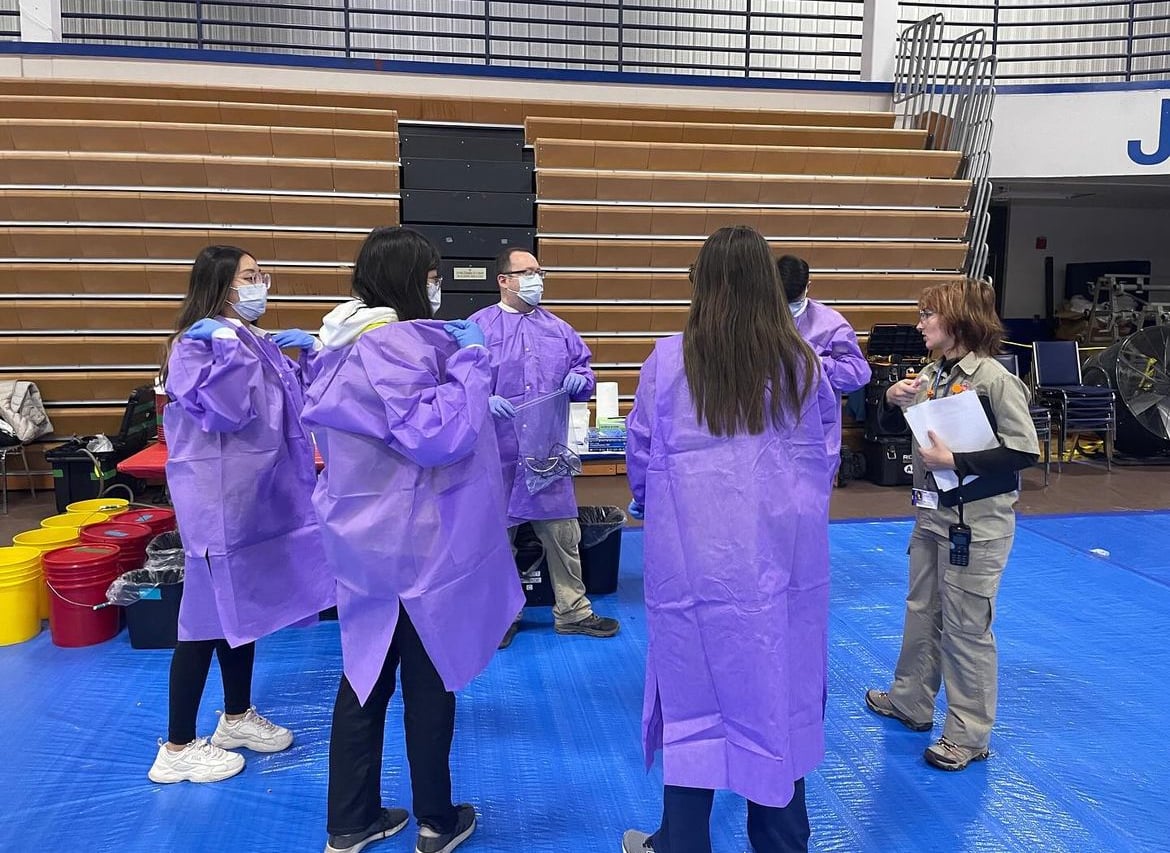The Northwestern chapter of Remote Area Medical has provided medical, dental and vision care to underserved communities across the U.S. since its founding in 2021.
RAM, a national nonprofit established in 1985, operates pop-up medical clinics. Since its formation, over 940,000 individuals have received health care services at no personal cost — no insurance or ID required.
For Weinberg sophomore and club secretary Erika Ruiz-Yamamoto, who has been involved with the club since her freshman year, the opportunity to provide life-changing treatment to patients for free is a “very, very tremendous gift.”
“It’s just incredible that, as (undergrads), we have access to this opportunity that would usually be more restricted to medical professionals or experts in the field,” Ruiz-Yamamoto said.
NU RAM is one of several student-run chapters nationwide that supply volunteer services to RAM’s pop-up clinics. Volunteer roles include setting up and taking down facilities, guiding patients through registration and assisting with medical care.
Students in NU RAM have traveled to volunteer at clinics within Illinois and in states such as Tennessee and Ohio. Their most recent trip was in early October to rural Eidson, Tennessee, where they helped provide over $65,000 worth of care to 98 patients, according to RAM’s report to NU’s chapter after the trip.
Weinberg senior and NU RAM President Alyssa Blanco said RAM clinics aim to create a welcoming atmosphere, especially for patients with traumatic healthcare experiences.
“Some people are scared of the doctors,” Blanco said. “Some people are scared of the dentist. Sometimes, offices can seem really cold. (RAM) makes it a more comfortable experience. That’s where the volunteers come in, making an experience where people feel safe.”
However, primary health care systems across the country are failing at a rate that RAM’s clinics can’t keep up with, said Weinberg junior and internal events chair Reilly Goldstrom.
According to Goldstrom, individuals in areas lacking medical access often suffer from conditions that progressively worsen without proper attention.
“We try to go in and catch those things, but again, it’s hard,” Goldstrom said. “Until (patients) get more consistent with primary care, you’re just kind of putting a Band-Aid on a bullet hole.”
Clinic days can be strenuous for RAM volunteers, with shifts lasting twelve hours or more, Goldstrom added. The first-come, first-served nature of the clinics often results in patient queues that stretch far out the door.
Despite the challenges, Goldstrom said witnessing the tangible impact that RAM’s services have on patients’ quality of life is a uniquely fulfilling experience.
“You’re getting people who haven’t had any health care in, like, 10 years,” Goldstrom said. “You’re helping them be able to see for the first time with vision (care), or they’re getting their teeth checked when they have had really bad tooth pain for the past five years. It’s really cool.”
Email: [email protected]
X: @siriii_r
Related Stories:
— ‘Focus on harm reduction’: NU club provides accessible opioid overdose training to students
— Northwestern Robotics Club talks fighting robots, gears up for future competitions






